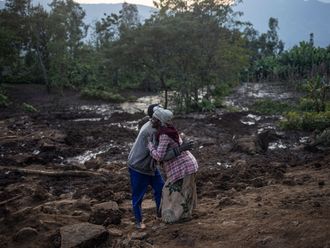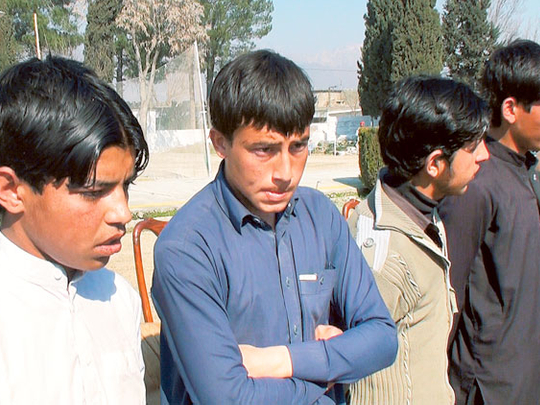
In order to gain an insight into the difficulties involved in the process of deradicalisation Gulf News held an exclusive interview with Dr Feriha Peracha who is the supervising psychologist at Sabaoon, the only de-radicalisation, rehabilitation and reintegration centre for juveniles in Swat, Pakistan.
Q1: How long have you been involved in rehabilitation efforts aimed at counselling and reintegrating the juveniles at Sabaoon?
A: It has now been almost three and a half years. It started in July 2009, after the successful counter-insurgency operation by the Pakistan Army. I was asked by General Nadeem Ahmad [responsible for reconstruction and disaster management at the time in Swat] if I wanted to profile the first 12 children/adolescents who had been apprehended. I said yes and travelled to Mingora with my colleague…there was no going back after that. Soon after that in August Sabaoon was inaugurated by General [Ashfaq Pervez] Kiyani [army chief] and I started working there. I had not before been involved with any deradicalisation, but soon learnt that the profile of these students did not differ much from that of youth at Risk for Violence. And I had worked with such a group before.
Q2: What is the main reason that contributes towards the radicalisation of these youngsters who are either trained as fighters or suicide bombers besides coercion in your experience?
A: If radicalisation can be encompassed in phrases like “It is written in the Quran that you are compelled to jihad against the Pakistan Army and the Americans, because they are infidels” then yes that is what they were told. Most come from very low socio-economic strata, most were school dropouts, teenagers without a dream or a hope for a future. They were promised heaven and the lure of 72 hoors [virgins]. Yes, some were intelligent and had joined because they were so inclined, these comprise less then 20 per cent.
Q3: People often cite poverty, lack of education and resources as well as the role of (some) madrassas as the main reasons for proliferation of militancy. But there have been cases which stand in contradiction. It would be helpful to have your insight on this.
A: Surely yes. Mothers do not send all their children to madrassas, only those who cannot cope with the academic demands or the ones with behavioural issues and the ones who are not in the mainstream. Is it surprising then that most of these happen to be middle children in sib-ships [number of siblings] of 5 to 25?
Q4: Is it easier to deradicalise younger boys than their older peers?
A: Yes, relatively so.
Q5: In your experience, do their families play a significant role in normalising the lives of these children? Do they also receive any counselling on how to deal with them once they leave?
A: Yes they do. In fact, the best predictor of success is a supportive family who come on Sundays and receive religious education and/or counselling.
Q6: Have you ever encountered comprehension and fear in boys who were trained to be suicide bombers? There is a general perception that often some children are not even aware they are on a suicidal mission.
A: Oh yes. Young boys who were caught just before they blew themselves up still suffer from Post Traumatic Stress Disorder. The essential features of PTSD is the development of characteristic symptoms following exposure to an extreme traumatic stressor involving direct personal experience of an event that causes death , injury or threat to personal integrity. The person’s response involves intense fear, helplessness or horror. They sometimes need psychiatric intervention besides therapy.
Q7: Do you feel that anti-US sentiments fuelled by drone strikes in other parts of the country have also spurred militancy among these youngsters?
A: Yes to some extent anti-American sentiment is fuelled by these news reports.
Q8: How would you rate Sabaoon’s efforts and do you feel this is something that should be replicated in other parts of the country as well?
A: I do feel that we learnt as we moved along. We accommodated any or all variables that we felt would help the process of disengagement and deradicalisation. Recently Prof John Horgan [Director of the International Centre for the Study of Terrorism at The Pennsylvania State University] visited Sabaoon and in his opinion it was perhaps the most progressive programme as we are following the students’ post-reintegration indefinitely or until we are reassured that recidivism is not a concern. There has been no recidivism. This is not to say there have been no concerns. We sometimes get reports from the social workers from the Monitoring Cell about some vulnerability due to situational or familial factors and have brought back 12 students to Sabaoon.
Q8: Is there any other aspect you would like to focus on in terms of de-radicalising society and what we all can do to help?
A: Much needs to be done. “The war of words” has not yet taken over to counter the ideology that the terrorists have propagated. We need to take over all the secondary schools in Khyber Pakhtunkhwa [KP] and provide the intervention for religious education, we need to work with mothers, encourage a planned family, and children should not be “dispensable”. We should help chart the course of these adolescents towards achievement. Our students have shown incredible success in their academic achievement and are at the top of the institutions they are attending…why? They do not have to be concerned about the expense of their education. Our promise to them? “You can do whatever you like on merit and we will support you!” This is the function of the State.
However there are no jobs in Swat. So our graduates became disillusioned. We have now set up a vocational skill centre elsewhere where there are jobs and our boys are training to become scouts to look for jobs for their peers!
Swat at the least should become a tax haven or also be given trade benefits and concessions so industrialists open factories and create jobs in Swat…. why not? It happened with Bangladesh. I just feel strongly that if the “powers that be” really wanted to help Pakistan (and not just give donations) then why are there no export benefits like tariff concession etc as have been given to Bangladesh.
There is so much that civil society can do and are doing…we just need the structure within which the expectations of human rights are not denied…education, health, jobs, security. Who then would want to die? Children grow up without an authority figure and women are mostly illiterate, although true they were empowered by Fazlullah [who led the Taliban in Swat] to “ensure heaven for their families..” they were given a role...If we had concessions for Swat and KP, believe me most businesses and industries would flourish there and opportunities would open up for jobs.
We pay for each and every cost for the students at Sabaoon and those reintegrated. The security is provided by the army and for that I am not only grateful, I would not have done this without this provision.
But there is a need for intervention programmes and community engagement at and through the secondary schools in the most vulnerable areas of Swat. Any donations that come to Sabaoon could help these boys build a better future for themselves. These would also enable other children.


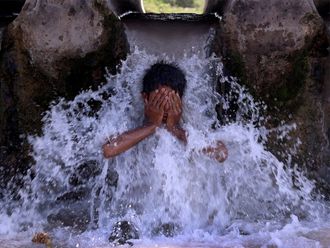
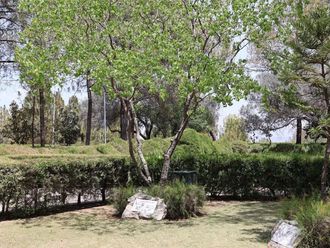
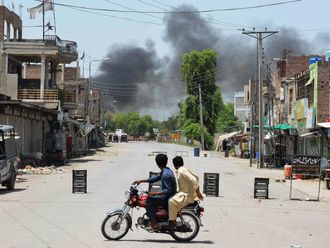
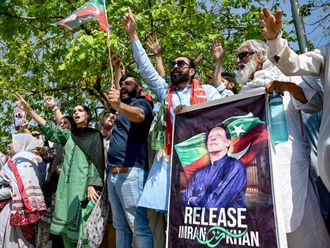
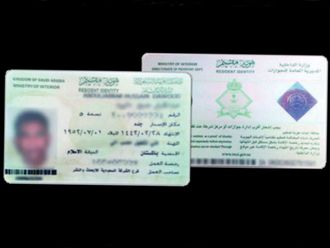


_resources1_16a30b3523c_small.jpg)
